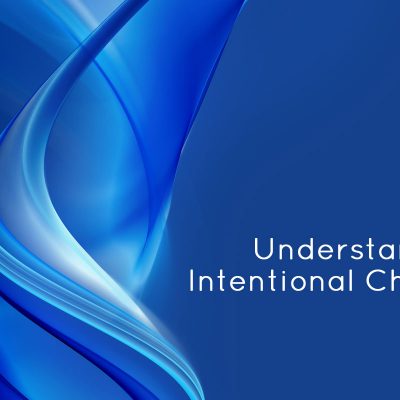
One of the things I feel most strongly about when we are assisting organizations to transform is to align responsibility with authority and accountability for high performance. We’ll unpack these definitions further later. Keep these simple definitions in mind as we explore this idea together.
- Responsibility: A duty or task that you are required or expected to do
- Authority: The power to give direction or make decisions
- Accountability: An obligation or willingness to accept responsibility or to account for one’s actions
Ideally, people and teams in organizations clearly understand their responsibility, are willing and able to be accountable, and have the authority to fulfil their responsibilities without unnecessary barriers or bureaucracy getting in the way.
Responsibility and accountability are pretty common
When undertaking a job, it is common to either receive or co-create clarity about the responsibility being undertaken. This is generally true for individuals and teams. In other words, most people know what they are supposed to do within their daily work.
It is also common for people to understand that they are held accountable for carrying out their responsibilities. Usually directly to their boss. As such, most people know who will monitor their performance. Ideally, they also know how it will be measured.
Authority is usually less understood
Authority is often less well known, at least in our experience. Rarely is the amount of authority that a person has to get the job done clearly articulated or understood. This leaves people in confusion about the authority that they have individually and as a team to get the job done. This might result in people making choices or decisions that they weren’t authorized to make. Or it might result in people seeking permission to take action, even though they don’t really need to.
It’s also important to note that people often accept responsibility but don’t question what authority they need to get the job done.
Aligning Responsibility, Accountability, and Authority Improves the Organization
Organizations today are shifting to a more agile, adaptive way of working. Those who haven’t yet positioned their organizations for more agility and adaptability in a performance environment of constant change are attempting to catch up and transform their way of working. Agility and adaptability are enhanced when responsibility is aligned with accountability and authority.
Visionary leaders and their organizations value their people and are working to embrace diversity, inclusion, equity and belonging as the best paths for the performance of their organizations. As they transform their organizations to support an inclusive culture of belonging, they find that this inclusive and belonging culture requires devolving authority throughout the organization so that the people individually and in teams have the authority to get their work done, and are accountable for their performance.
There is great benefit to bringing responsibility, accountability, and authority into alignment.
Further defining responsibility, authority and accountability
It is a fool’s errand to accept responsibility without the authority to carry out the responsibilities given. It just doesn’t make sense. It is also a recipe for abuses of authority if accountability is not part of the expectation. It is not only important that a person or team understands and knows their responsibility, authority and accountability…it is important that others in the organization are aware.
Let’s look at these concepts more deeply.
- Responsibility. To carry out the accepted job/team role, scope of work, fulfilling the tasks and duties that are required/expected to be done. Responsibility is usually outlined in the position description of the individual and in the statement of scope of work of the team. The job is considered well done if the responsibility is fulfilled. In the case of an expected attitude of carrying out the job, the job is further evaluated on the way it has been fulfilled i.e.: in accordance with the values of the company.
- Accountability. This begins with an obligation to hold oneself accountable for one’s actions as individuals and as a team in relation to the position description/scope of work. This requires personal/team monitoring and adjustment of work fulfilment in relation to the responsibilities and expectations. Beyond holding oneself accountable, an individual and a team are accountable to the balance of the organization for their performance. Being accountable only to the immediate ‘boss’ is one form of holding oneself accountable for performance. If this is the form of accountability, a process for informing the balance of the organization is an important part of the accountability as the organization is reliant on every part of the organization for optimal performance. Another form of accountability, having first been self accountable, is to be accountable directly to the whole organization and not via a hierarchy.
- Authority. In relation to the position description/team scope of work that outlines the responsibilities, authority to be the ‘author’ of getting the job done, with sufficient freedom for making choices and decisions for successful job fulfilment. A person or team who has the authority to fulfil the responsibilities and expectations can make those choices and decisions closest to the actual work being done, like on a shop floor or during a customer visit, without having to pause in the process to get permissions. Note that this authority is the decided upon and declared authority to fulfil the position description/expectations.
All 3 must be interrelated
In taking accountability for fulfilling responsibilities, without having the authority to get the job done is an act of futility. It is often a disconnect that causes the depletion of embracing the work to be done. It can feel life depleting.
In taking accountability for fulfilling responsibilities, and having the authority to get the job done, the person and the team have an experience based on their feeling of power within the company to do a good job for themselves, the team, and the company as a whole.
A simple tip
In your organization, take a look at:
- employee job descriptions
- team mandates
- project definition/scope of work
And ask yourself “are responsibility, accountability, and authority clear?”
Consider:
- Is the responsibility clearly identified? Does it describe all of what is expected of this individual, team, or project? Or does it cover core responsibilities while leaving out other work that is being done by this person or team? If some of the responsibility is left out or unclear, work to better define it. Consider whether it is beneficial to include the person or team in undertaking this clarification?
- Is the accountability clear and clearly communicated? How is performance measured? Within this, how are successes celebrated? And what happens when responsibilities are not met? If the accountability isn’t clear, work to better define it. Consider whether it is beneficial to include the person or team in undertaking this clarification?
- Does the person or team have the authority to get the job done? Can they make the choices and decisions necessary to fulfil their responsibility? If not, is it possible to devolve authority so that the individual or team does have the needed authority? Or does the responsibility need to be changed so that the amount of authority is aligned with the amount of responsibility, thus aligning what needs to happen with the power to do so?
Working to align responsibility, accountability, and authority within these written descriptions is a simple starting place for creating this alignment across the organization.
Photo by LinkedIn Sales Solutions on Unsplash








Leave a Reply
You must be logged in to post a comment.